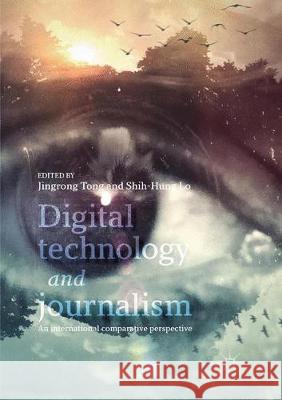Digital Technology and Journalism: An International Comparative Perspective » książka
topmenu
Digital Technology and Journalism: An International Comparative Perspective
ISBN-13: 9783319855479 / Angielski / Miękka / 2018 / 367 str.
Kategorie:
Kategorie BISAC:
Wydawca:
Palgrave MacMillan
Język:
Angielski
ISBN-13:
9783319855479
Rok wydania:
2018
Wydanie:
Softcover Repri
Ilość stron:
367
Oprawa:
Miękka
Wolumenów:
01











